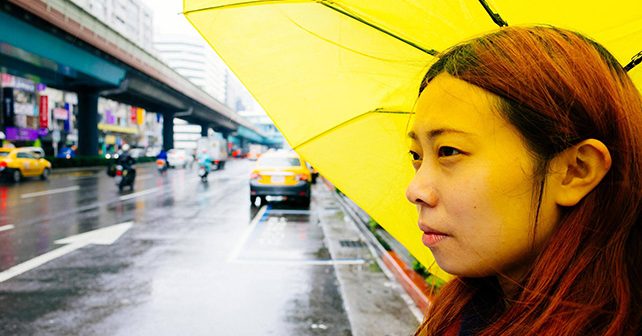
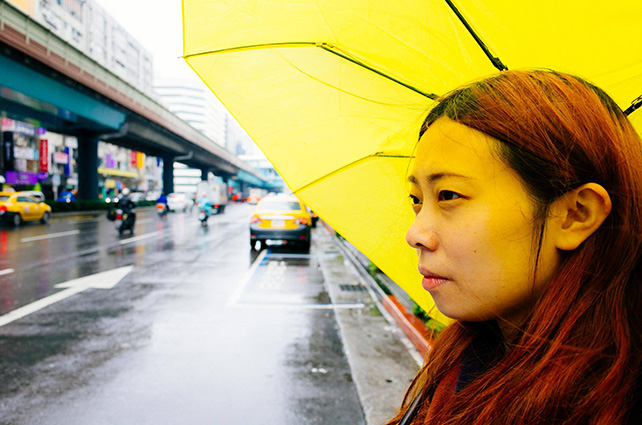
Law Lok Man Louise
Who we are, what are the worlds we inhabit and what are our responsibilities as denizens – these are among the many thought-provoking questions raised by the 21st edition of the Singapore Writers Festival (SWF) as it returns this November as the leading literary event in the region, to inspire people to come together to explore new worlds and ideas. Organised by the National Arts Council to champion and grow appreciation for literary arts and culture in Singapore, the Festival will feature an exciting line-up of influential Singapore and international writers, speakers and thinkers who will headline a multitude of literary events over two weeks, from 2 to 11 November 2018, in the Civic District.
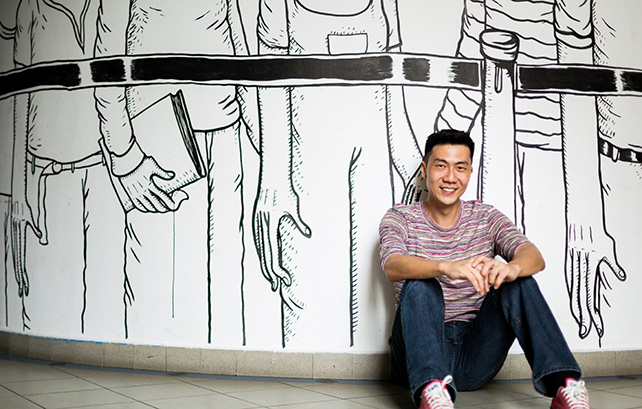
Ken Kwek
2018 FESTIVAL THEME: 界 (jiè)
For the third year running, the Festival theme will be drawn from one of the non-English official languages – this time centred around a Chinese character referring to the different world(s) we live in – 界 (jiè). The word itself is nuanced with multiple meanings, expressing the idea of endless worlds which range from one’s imagination and virtual reality to geographical borders and man-made boundaries. The Festival went with the Tamil word ‘Aram’ (meaning “goodness”) in 2017 and the Malay word ‘Sayang’ (meaning “love” or “loss”) in 2016.
This year’s textured theme will encompass a broad spectrum of topics including immigration, inter-culturalism, climate change and identity. The spread seeks to offer audiences a wealth of fresh perspectives on how they see themselves, as well as to explore their identities to better understand their experiences in the world(s) they live in. In response to the theme, homegrown musician and fiction writer Kelvin Tan has created a Mandarin-based music piece interspersed with lines of dialect – including Cantonese, Hokkien and Teochew – as the key Festival commission this year.
This year, the Festival honours Yeng Pway Ngon as our Literary Pioneer. The wide-ranging oeuvre of the Chinese writer, who received the Cultural Medallion for Literature in 2003 and a three-time winner of the prestigious Singapore Literature Prize, will be celebrated through a Classroom Talk, an exhibition and a soiree featuring family, friends, colleagues and fellow writers which will be co-presented with The Arts House.
On the 2018 Festival theme, the Festival Director, Yeow Kai Chai, shared: “This year, we implore all writers, thinkers and audiences to reflect on what it means to be a citizen of the world, whilst considering our personal and geographical borders and other realms. The theme explores a sense of endless possibilities, a rich territory that we’ve woven in all our programming to inspire individuals with a multiplicity of viewpoints, experiences and perspectives to expand their pre-existing understanding of the world. In bringing communities together to explore what makes us different or what shared values unite us, we hope to spark literary conversations that truly transcend borders.”
LITERARY GIANTS FROM AROUND THE WORLD
The Festival will be headlined by a line-up of diverse writers, poets, graphic novelists, philosophers and thought leaders from around the world (full list in Annex C):
Poetry:
- Cathy Song (US): Song consistently creates a world rich with narrative and imagery that transcends her own ethnic and regional background. Her first volume of poems, Picture Bride, won the 1982 Yale Series of Younger Poets Award;
- Simon Armitage (UK): Lauded as a prolific poetry professor across universities in the UK, Armitage is an award-winning poet and novelist focused on writing around themes of identity and life experiences;
- John Yau (US): Protégé of one of the greatest American poets John Ashbery, Yau is an experimental and noted poet, art critic and curator who brings perspectives of his dual heritage to his Post-Asian American poetry;
- Judith Beveridge (Australia): Author of six collections of poetry, Beveridge’s poems emphasise nature and an imagistic approach, and model the interaction between spirituality, the natural world, and selfhood;
- Zurinah Hassan (Malaysia): Hassan is the first Malaysian Sunthorn Phu Poet Laureate and the first female writer to be awarded the National Literary Award of Malaysia;
- ko ko thett (Myanmar): Poet, translator and editor of the first anthology of modern Burmese poetry published in the West, who explores boundaries between subjects, languages and localities.
Fiction:
- Kiran Desai (India/US): The youngest female writer to win the Book Prize 2007 for her novel, The Inheritance of Loss, which was hailed by critics as a keenly observed description of globalisation;
- Irvine Welsh (UK): Best known for his 1993 novel, Trainspotting, that was made into a film of the same name, Welsh’s fiction is often controversial, dominated by themes of class division, prejudice and identity;
- Liu Zhenyun (China): Acclaimed novelist whose 2012 book, I Did Not Kill My Husband, was adapted into the 2016 black comedy film, I Am Not Madame Bovary, by director Feng Xiaogang;
- S. Venkatesan (India): A Tamil writer from Tamil Nadu whose 2010 novel, Kaval Kottam, received the prestigious Sahitya Akademi Award for Tamil in 2011;
- Andreas Norman (Sweden): Formerly a member of a Swedish counter-terrorism unit, Norman worked closely with foreign intelligence agencies on global projects to track terrorist groups and prevent terrorism. In his writing, he loves to create worlds and characters filled with secrets and contradictions.
Non-Fiction:
- David Sedaris (US): Master of satire and one of the most observant writers addressing the human condition, Sedaris draws from personal experiences and self-deprecation in his essays, short stories and plays;
- Jeff Goodell (US): While he started his career as a journalist writing about cops, crime AIDS and politics, Goodell has since published six books on various topics, and writes on energy and climate issues today;
- Paul French (UK): Historian best known for commenting on China for the English-speaking press around the world, French is also the author of books about modern Chinese history and contemporary Chinese society, including Midnight in Peking;
- Sarah Churchwell (US): In addition to authoring multiple books, Churchwell comments regularly on arts, culture and politics in media across the world. She is also the Director of the Being Human Festival, a festival which explores how humanities help us understand ourselves and our relationships with others.
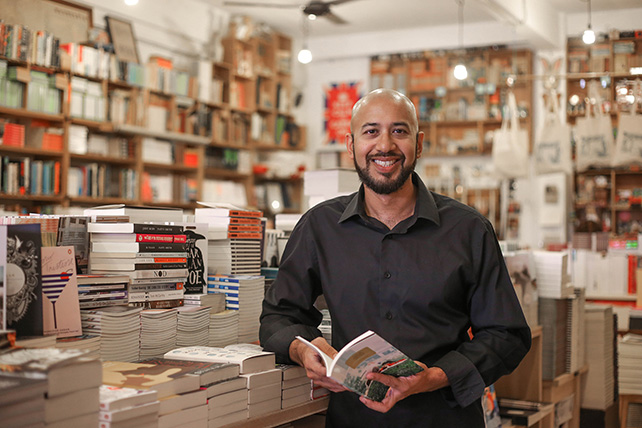
Marc Nair (photo by Dalene Low)
DISCOVER OTHER GENRES, REALMS AND LITERARY ARTS
Fantasy and Speculative Fiction: In the spirit of exploring other realms, this year’s programming will see a focus on speculative and experimental fiction and other-worldliness with participating authors like Intan Paramaditha (Indonesia), whose body of work typically explores the intersection between gender, culture and politics in the horror genre, science-fiction and fantasy writer Xia Jia (China), as well as Rachel Heng (Singapore), whose science-fiction debut novel, Suicide Club, explores a dystopian society obsessed with genetic perfection.
Technology and Digital Media: Technology will also be in the spotlight at the Festival this year, where topical issues such as virtual reality, brain-hacking and cryptocurrency will be addressed vis-à-vis the use and importance of it in contemporary society. For example, author and media studies professor Miriam Meckel (Germany) will examine the ethics of artificial intelligence and speculate on what the world would be like half a century later. Another event highlighting the focus on technology is the ever-popular SWF Closing Debate, where long-time Festival stalwarts Gwee Li Sui and Adrian Tan, and newbies Preetipls and Daryl Qilin Yam debate the motion This House Believes that Singaporeans Are Better Off With Social Media.
Eco-consciousness: Moving ahead, the Festival will continue to make a concerted effort as an environmentally-friendly event by advocating eco-consciousness in both its programming and operations. To this end, Zero Waste SG will present a talk on The Microplastic Crisis and You under SWF Class. In addition, climate change expert Jeff Goodell will paint a vivid picture of humanity’s fraught relationship with our planet in a 1-hour lecture under SWF Stage. All authors will also be provided with reusable – rather than single-use – water bottles throughout the Festival.
Sequential Arts: Additionally, sequential arts fans can look forward to exploring the ever-changing worlds of comics, graphic novels and manga with husband-and-wife cartoonist duo Lewis Trondheim and Brigitte Findakly (France), known for mixing satire and fantasy in their work and David Collier (Canada), known for challenging the revisionist narrative and exposing lies and anti-Semitism.
Medical Humanities: As part of a co-presentation with Nanyang Technological University’s School of Humanities and Social Sciences, writers Yong Shu Hoong and Danielle Lim will be part of several panels confronting issues of mortality and end-of-life care, as well as connections between illness, healthcare and literature respectively.
Trans-national identities: Writers from different backgrounds exploring the concept of identities will also dock at the Festival this year. They include the German spoken word artist Fatima Moumouni, who uses slam poetry to confront racism and gender discrimination; celebrated raconteur and author Ivan Coyote who will discuss what it is like to be on the outside looking in; Senthuran Varatharajah, who will draw from personal experience fleeing Sri Lanka to Germany as a migrant; and a panel event, in collaboration with the Chou Sing Chu Foundation, that will see writers debate the definition of Singaporean versus Malaysian Chinese literature.
CELEBRATING SINGLIT AND ASEAN LIT
On top of the Council’s efforts to boost Singapore’s literary scene through residencies and grants, the Festival continues to spotlight local writers. As with previous editions, SingLit will continue to shine brightly at the Festival and feature authors across genres such as fiction writer Clarissa Goenawan, historian Wang Gungwu, literary and cultural critic Kirpal Singh, comedy author Sebastian Sim, screenwriter Hamed Ismail and international migration scholar and National University of Singapore Associate Professor Anju Mary Paul.
With Singapore being the secretariat for ASEAN this year, the Festival will feature a rich tapestry of programmes in collaboration with our regional neighbours such as One Voice, a showcase of the best ASEAN performing arts among all 10 ASEAN member states, a panel discussion of the history of the Jawi script in Southeast Asia and its evolution through time, as well as a classroom talk by Singapore author Nilanjana Sengupta, who will be talking about the role of film director Maung Wunna in leading the new wave of Burmese cinema in the 1950s.
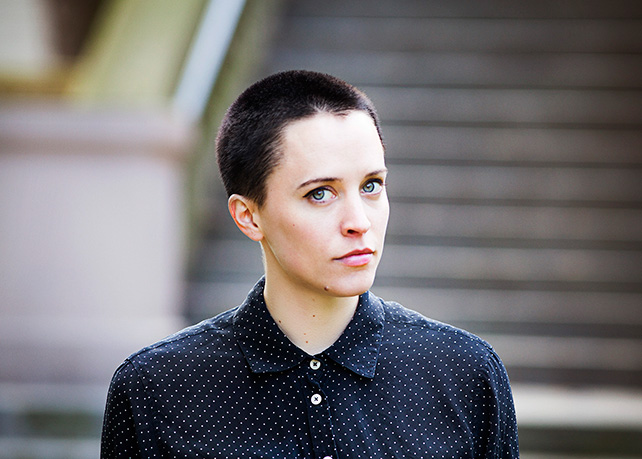
Rike Scheffler (photo by Valerie Schmidt)
SWF COUNTRY FOCUS: GERMANY
Nine writers and speakers from Germany will be participating in the Festival this year. They include the Japanese-born, Berlin-based Yoko Tawada, whose Japanese and German works highlights the strangeness in one language when seen from the perspective of someone who speaks another language; experimental poet Rike Scheffler, who uses her voice as an instrument along with effect pedals, loop stations and synthesizers to layer poem-like songs; and novelist Julia Franck, whose book Die Mittagsfrau (The Blind Side of the Heart), set in two tumultuous post-war periods of World War I and II, won the German Book Prize in 2007.







